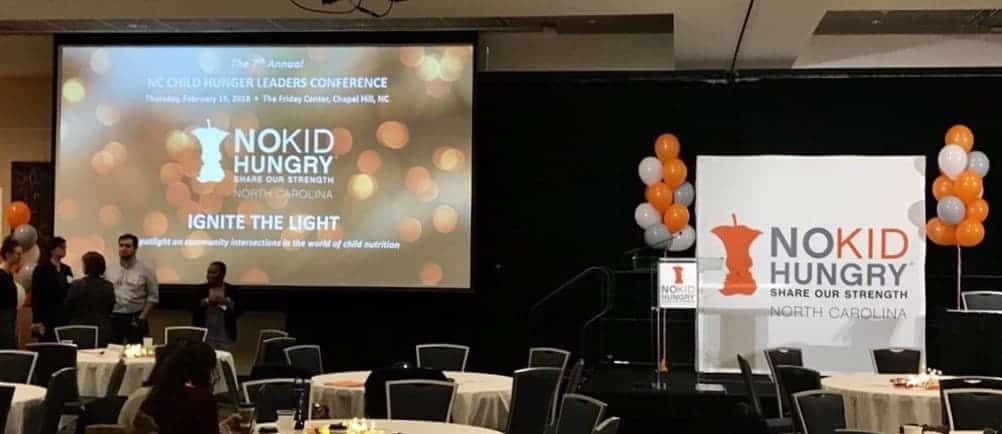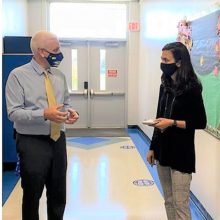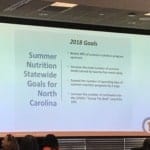For the almost 400,000 students across North Carolina who eat school breakfast, it is far more than a meal; it provides the opportunity to start the day with a full stomach and a focused brain. The importance of school breakfast and other school nutrition programs as instructional interventions were discussed at the 7th annual NC Child Hunger Leaders Conference hosted by No Kid Hungry NC on Thursday.
Research supports the benefits of school breakfast, showing that children who eat it are more likely to attend school, be better learners and participate in the classroom. Beyond alleviating absenteeism and increasing academic performance, participation in school breakfast programs is also associated with a decrease in behavioral problems.
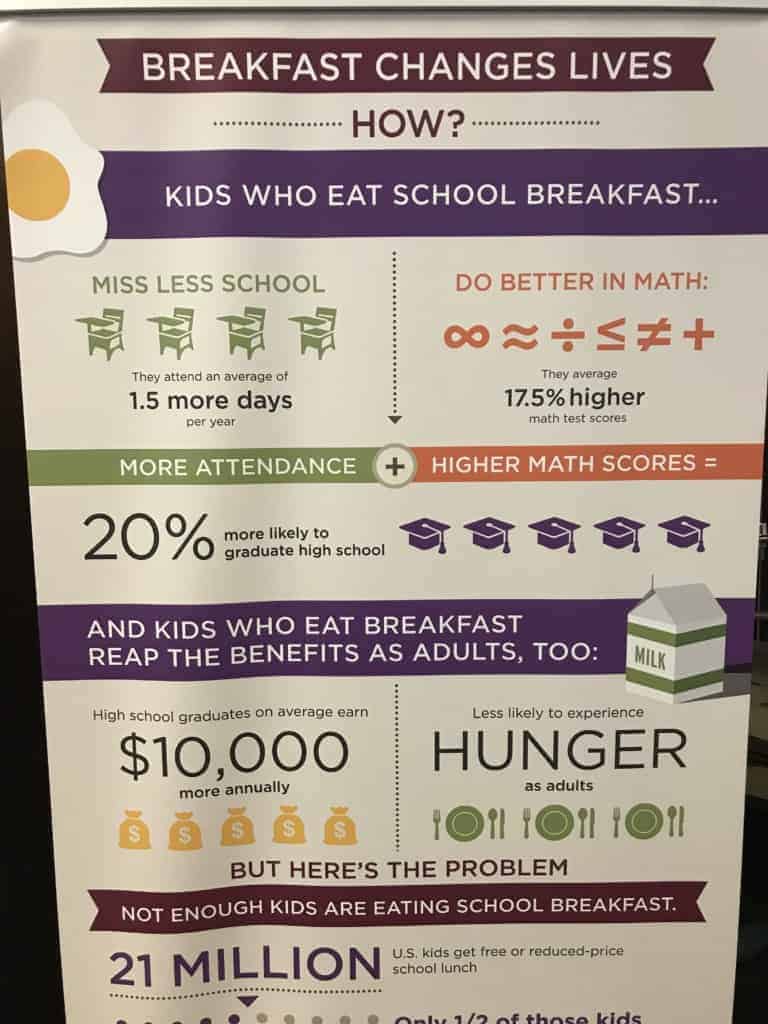

Child nutrition directors, educators, nonprofit leaders and child nutrition advocates gathered at the Friday Center in Chapel Hill to discuss best practices, lessons learned and pathways forward to “ignite the light” and foster innovative school nutrition programs statewide.
Dr. Lynn Harvey, director of school nutrition services at the North Carolina Department of Public Instruction, addressed conference members via video. She emphasized the usefulness of school meals as a strategy to increase the academic success of schools.
“Meals at schools are instructional interventions – just like textbooks and technology” said Harvey.
This sentiment became a recurring theme throughout the conference. Principals, superintendents and child nutrition service employees shared stories, facts and figures to illustrate the far-reaching impacts of school nutrition programs.
Jason Griffin, principal at Hertford Grammar School and the 2017 Wells Fargo NC Principal of the Year, discussed the positive benefits of the universal breakfast in the classroom program at his school.
Each morning, school nutrition employees pull carts with breakfast through the hallways at Hertford Grammar School, reducing the stigma associated with eating school breakfast and ensuring that every student has the opportunity to eat a meal before starting the school day.
“What can we do other than academics to ensure our kids do better? The research says 17 percent of students are likely to do better just by eating breakfast,” said Griffin. “We have to start thinking about nutrition. Now, we have 94 percent of our students eating breakfast every day.”
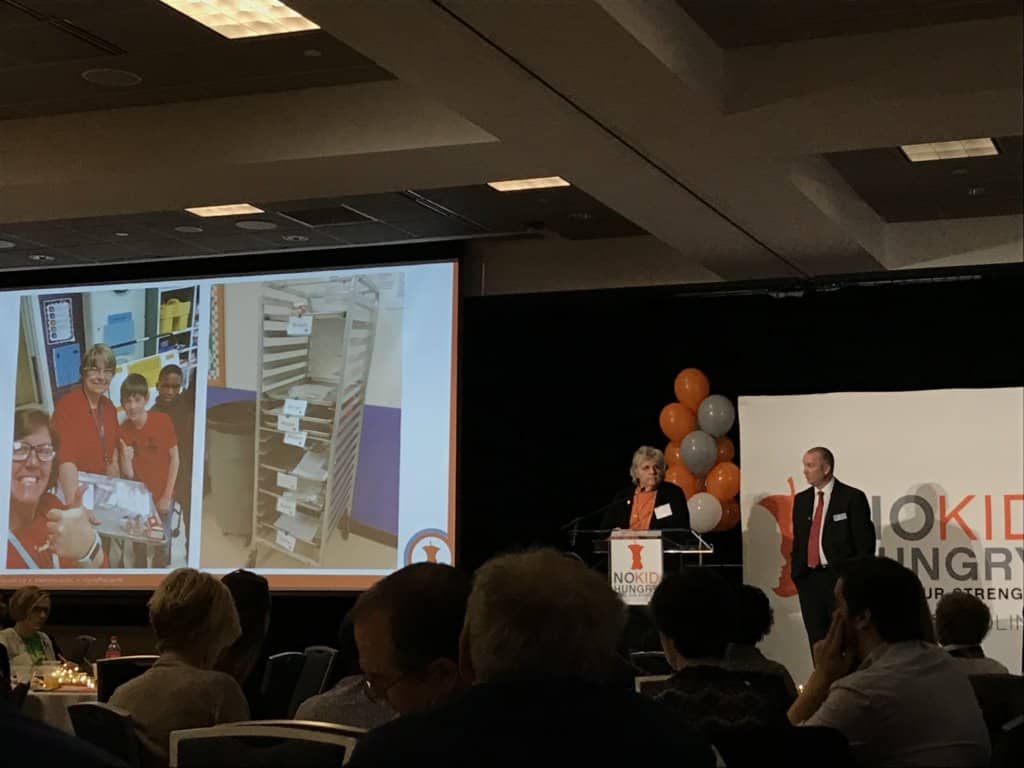

Tamara Baker, project and communications director for No Kid Hungry NC, and Cynthia Ervin, summer nutrition program manager for North Carolina Department of Public Instruction, continued the conversation by hosting a panel on summer nutrition programs.
Ervin discussed the need to expand the amount of sites that offer summer meals and the number of children who come to those sites. In 2017, 53 of North Carolina’s 100 counties served summer meals to less than 10 percent of the needy children in their county. Swain, Halifax and Northampton rank as the top three counties for percent need met through the 2017 North Carolina summer nutrition program.
Schools and districts that are interested in getting more involved in the school breakfast or summer food service nutrition programs can access county- and district-specific profiles on the No Kid Hungry website to gain a better understanding of who in their area is already doing this work and to identify gaps in the available services. Below is an example of a summer nutrition county profile.
In the keynote address, Attorney General Josh Stein emphasized the barriers that prevent the over 900,000 North Carolina students who qualify for free- and reduced-price meals from accessing those meals.
“Feeding hungry children is an investment in the future of our state and is also just the right thing to do,” said Stein.
Editor’s note: The first sentence was altered to clarify almost 400,000 students receive breakfast.
